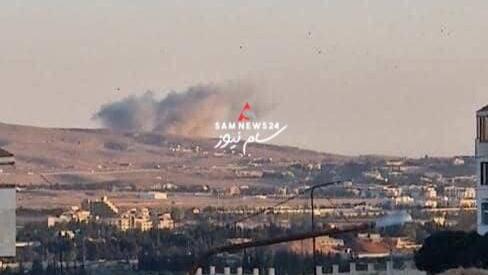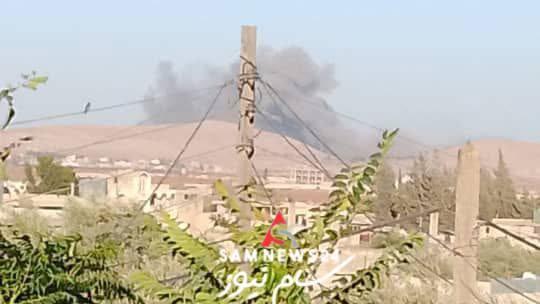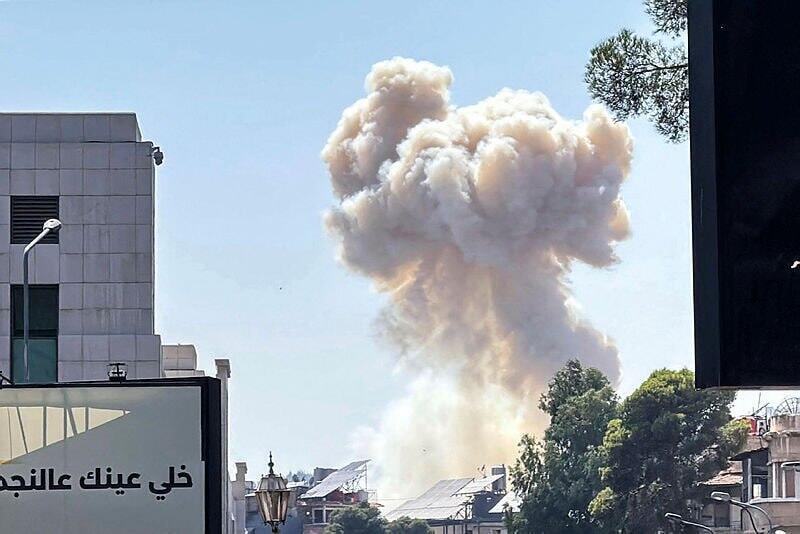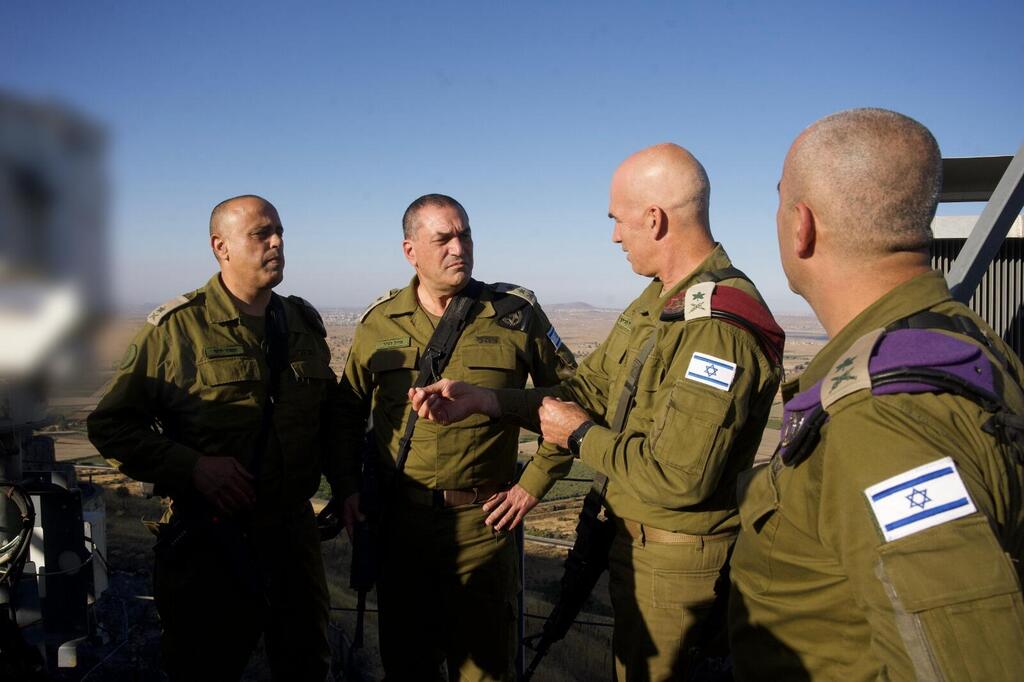Druze leader Sheikh Yusuf Jerboua, who had previously announced the ceasefire, told Saudi newspaper Asharq Al-Awsat that the agreement had not been signed by all parties due to ongoing security concerns in Sweida. He said the truce was reached through written communication, not direct talks, and warned that “external actors are seeking to sabotage the agreement.”
IDF strikes military targets in Syria
(Video: IDF)
An Israeli security official told Ynet that a resolution to the escalation in Syria may be near. “We believe President al-Sharaa will soon announce a ceasefire and the withdrawal of his forces from Sweida,” the official said.
Among the latest targets struck by Israel was a General Security facility in Sweida, according to Syrian reports. Additional strikes were reported in Al-Moadamiyah, on the outskirts of Damascus, targeting sites linked to the now-defunct Fourth Division, previously commanded by Maher Assad, brother of former Syrian President Bashar Assad, whose regime fell in December.
Earlier in the day, Reuters cited sources in Damascus who said Israeli missiles hit a suburb in western Damascus. Syria’s official news agency, SANA, reported another Israeli strike in the city of Qatana, also in the Damascus countryside.
The U.S. State Department called on Syria to withdraw its forces to allow for de-escalation. Meanwhile, Syria sent a letter to the United Nations Security Council urging it to address what it called the “consequences of Israeli aggression,” according to documents seen by Reuters.
The ongoing air campaign is reportedly being led directly by Israeli Air Force Commander Maj. Gen. Tomer Bar from the Air Force bunker at the Defense Ministry headquarters in Tel Aviv. According to IDF sources, more than 90 missiles and bombs have been launched in dozens of strikes using fighter jets and drones, targeting regime vehicles, tanks and armored personnel carriers. Initial military assessments suggest that Syria’s General Staff headquarters was heavily damaged, possibly destroyed, in one of the major Israeli strikes.
Meanwhile, thousands of demonstrators took to the streets in Damascus and Aleppo to protest the Israeli attacks. In Aleppo, crowds chanted, “The people want to declare jihad.”
Mahand al-Din, a resident of Sweida province, told Ynet that “the Israeli strikes in the region are meant as a message of deterrence, not defense.” According to him, “In recent hours, General Intelligence forces were struck and five people were killed, with others wounded. Yesterday, a Syrian tank was attacked on the pretext that it crossed a restricted line, but that’s just a cover for establishing new rules of engagement—imposed through fire, not words. It’s an exploitation of a security loophole, a use of the current situation to maintain control over militarily seized positions.”
“Israel is conducting negotiations through strikes, as usual, and the attack wasn’t meant to protect the Druze. Israeli sources even said as much,” Al-Din added. “Israel isn’t intervening to defend anyone; it’s an occupying force and a violator of human rights. The strikes are meant to enforce the logic of ‘we’ll let you move, but only under our supervision and on our terms.'
“The entry of al-Sharaa forces into Sweida wasn’t just a domestic decision; it was carried out with an Israeli green light, as part of an undeclared security understanding that the Syrian army’s deployment would be temporarily accepted, provided it remains without force or sovereignty.”
Trump referred the question on the clashes to Rubio, who said, “The situation is complex. These are clearly long-standing historic rivalries between different groups in southwestern Syria—the Bedouins, the Druze community—and it has led to an unfortunate situation and what seems like a misunderstanding between the Israeli and Syrian sides.”
“We were in contact with both sides all night and this morning," he added. "We believe we’re on a path to real de-escalation, and then, hopefully, we’ll return to assisting Syria in building a nation and achieving a far more stable Middle East. We hope to see real progress in the coming hours toward ending what you’ve seen in recent hours.”
Meanwhile, IDF Chief of Staff Lt. Gen. Eyal Zamir held a situation assessment at the Nafah base in the Golan Heights with Deputy Chief of Staff Maj. Gen. Tamir Yadai; Northern Command chief Maj. Gen. Ori Gordin; head of Military Intelligence Maj. Gen. Shlomi Binder; head of the Operations Directorate Maj. Gen. Itzik Cohen; 210th Division commander Brig. Gen. Yair Palai and other senior officers, the IDF said.
Following Zamir's directive to intensify efforts along the frontier, members of the General Staff conducted a field tour and spoke with commanders in the area.
“We are acting decisively to prevent the entrenchment of hostile actors across the border, to protect Israeli civilians and to prevent harm to the Druze,” Zamir said. “We will not allow southern Syria to become a terrorist stronghold. We will rely on no one else; we will defend the border and the communities along it. There is no room for disorder at the fence.”
According to Zamir, “Since yesterday, the IDF has struck targets belonging to the Syrian regime, mostly in Sweida province, and in recent hours also in Damascus.”
“I appeal to you, our brothers in the Druze community, I am aware of your pain. Still, obey the law and protect yourselves. We are committed to your safety and are doing everything possible to assist you. I have ordered additional surveillance and strike capabilities to increase the pace of attacks and stop assaults against Druze in Syria as needed. Our commanders and soldiers are acting responsibly, with restraint and sound judgment, toward a population that matters to us, while maintaining security.
"We are preparing for a significant reinforcement of defensive forces in the Golan Heights with the clear goal of preventing any threat to the safety of Israeli citizens and, as much as possible, protecting Druze in Syria who are in danger.”







